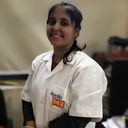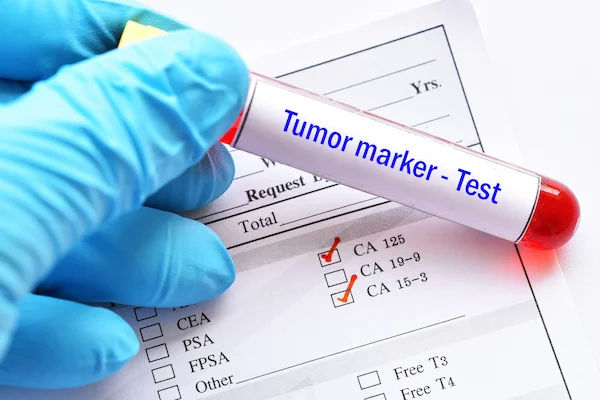Guide to Precautions During Chemotherapy
A comprehensive guide to precautions during chemotherapy, covering diet, lifestyle adjustments, hygiene, and tips to manage side effects. Learn how to navigate your treatment safely and effectively.


Introduction
Embarking on a chemotherapy journey is a courageous step in your cancer treatment. While the therapy targets cancer cells, it can also temporarily affect healthy cells, making your body more vulnerable. This is why understanding and implementing crucial precautions during chemotherapy is paramount for your safety and well-being. This guide is designed to empower you and your caregivers with practical, actionable knowledge to navigate this period with confidence. We will delve into everything from infection prevention and dietary guidelines to managing side effects and daily lifestyle adjustments. Think of this not as a list of restrictions, but as a strategic plan to protect your health, minimize complications, and help your body focus on healing throughout your treatment.
Why Precautions During Chemotherapy Are Non-Negotiable
Chemotherapy is a powerful systemic treatment, but its effects aren't limited to cancerous growths. It can also impact fast-dividing healthy cells, including those in your bone marrow, which is responsible for producing blood cells. This fundamental understanding is the key to appreciating the "why" behind every safety rule.
Understanding Neutropenia: Your Weakened Immune System
The most significant risk during treatment is neutropenia—a condition where your neutrophil (a type of white blood cell) count drops drastically. White blood cells are your body's infantry against viruses, bacteria, and fungi. With a weakened immune system, your body's ability to fight off common pathogens is severely compromised. A minor infection for a healthy person can become a serious, hospitalization-requiring event for someone undergoing chemo. This is why preventing infection during chemo is the cornerstone of all safety protocols.
Consult Top Specialists
The Goal: Minimizing Risks While Maximizing Treatment Efficacy
The purpose of these precautions during chemotherapy is twofold. First, and most importantly, they protect you from preventable illnesses that can derail your treatment schedule. Doctors may need to delay or reduce chemo doses if your body is fighting an infection, which can impact the overall effectiveness of your cancer treatment. Second, these measures help you manage side effects more effectively, improving your quality of life and giving you a greater sense of control during a challenging time.
Infection Prevention: Your First Line of Defense
This is your most critical battleground. Diligence here can prevent the majority of treatment-related complications.
Hand Hygiene: The Golden Rule
Wash your hands frequently with soap and warm water for at least 20 seconds. This is non-negotiable for you and everyone in your household. Scrub before eating, after using the bathroom, and after touching surfaces in public places. Carry an alcohol-based hand sanitizer (at least 60% alcohol) for times when soap and water aren't available.
Avoiding Illness and Crowds
Be strategic about your social interactions. Avoid crowded places like shopping malls, movie theaters, and public transportation, especially during your nadir (the period when your blood counts are at their lowest, typically 7-14 days after a treatment). Politely distance yourself from anyone who is sick, even with a simple cold. Don't be afraid to ask visitors to reschedule if they feel unwell.
Skin and Mucous Membrane Care
Your skin is a barrier; keeping it intact is vital.
Oral Care and Mucositis Prevention
Chemo can cause mouth sores (mucositis). Use a very soft-bristled toothbrush and a mild, non-abrasive toothpaste. Rinse your mouth several times a day with a salt and baking soda solution (1/2 tsp salt + 1/2 tsp baking soda in 1 cup warm water) to keep it clean and neutralized. Avoid alcohol-based mouthwashes. If painful sores develop that make eating or drinking difficult, consult a doctor online with Apollo24|7 for immediate advice on managing mucositis.
Proper Wound and Cut Care
Treat any cut, scrape, or bug bite immediately. Clean the area with warm water and soap, apply an antibiotic ointment, and cover it with a sterile bandage. Watch for signs of infection like redness, swelling, or pus. Use an electric razor instead of a blade to avoid nicks, and be extra careful when trimming nails.
Dietary Do's and Don'ts: Navigating Food Safety
What you eat fuels your recovery, but it can also be a source of harmful bacteria. What to eat during chemotherapy revolves around safety as much as nutrition.
The "Cook it, Peel it, or Leave it" Rule
This is an easy mantra to remember. Eat foods that are thoroughly cooked, fruits and vegetables that can be peeled (like bananas and oranges), or leave it on the shelf if it doesn't meet these criteria. This means avoiding raw or undercooked foods like sushi, rare meat, raw eggs (in Caesar dressing or hollandaise), and unpasteurized products (milk, cheese, cider).
Foods to Avoid During Treatment
Steer clear of:
Raw sprouts: Alfalfa, bean, and radish sprouts are notorious for harboring bacteria.
- Pre-cut fruits and vegetables: These have more surface area exposed to potential contamination.
- Salad bars and deli counters: It's impossible to know how long food has been sitting or how it's been handled.
- Well water: Unless it's been tested and proven safe, stick to filtered or bottled water.
Safe Food Handling and Preparation at Home
Wash all fruits and vegetables thoroughly, even those you plan to peel. Use separate cutting boards for raw meat and produce. Ensure all foods, especially meat, poultry, and seafood, are cooked to a safe internal temperature. Refrigerate leftovers promptly (within 2 hours).
Managing Common Side Effects Proactively
Combating Chemo-Induced Nausea and Vomiting
This is one of the most feared side effects, but modern medicine has made great strides. Take anti-nausea medications exactly as prescribed, don't wait until you feel sick. Eat small, frequent meals instead of three large ones. Stick to bland, easy-to-digest foods like toast, crackers, broth, and bananas. Ginger tea or candies can also be soothing. If your prescribed medication isn't controlling nausea, contact your oncology team immediately; they have multiple options to help you.
Addressing Fatigue and Conserving Energy
Chemo-related fatigue is profound and isn't fixed by sleep. Listen to your body. Pace yourself and prioritize tasks. Allow others to help with cooking, cleaning, and errands. Short, gentle walks can actually help boost energy levels, but balance activity with rest. Consider light yoga or meditation for managing chemo side effects like stress and fatigue.
Lifestyle Adjustments and Personal Care
Pet and Animal Safety During Chemo
Pets offer incredible emotional support, but require careful handling. Always wash your hands after petting or feeding them. Avoid cleaning bird cages, fish tanks, cat litter boxes, or cleaning up after any pet accidents, as these can harbor parasites and bacteria. If you must do it, wear disposable gloves and wash your hands thoroughly afterward.
Sexual Health and Contraception Considerations
Chemo drugs can be present in vaginal secretions and semen, so use condoms during treatment and for a period after (as advised by your doctor) to protect your partner. It's also crucial to use reliable contraception, as chemotherapy can cause severe birth defects. Libido may also decrease due to fatigue and stress—open communication with your partner is key.
Travel and Socializing Safely
If you must travel, plan ahead. Pack your hand sanitizer, medications, and safe snacks. Avoid crowded airports and
trains during off-peak hours if possible. When socializing, host small gatherings at your home where you can control the environment, or meet friends outdoors for a walk in the fresh air.
The Emotional and Mental Precautions
Seeking Support and Managing Stress
Your mental health is just as important as your physical health. The stress of cancer and treatment is immense. Don't isolate yourself. Talk to friends, family, or a professional therapist. Join a cancer support group to connect with others who understand your experience. Practices like mindfulness, meditation, and gentle hobbies can significantly reduce anxiety and improve your overall outlook.
Quick Takeaways: Key Safety Points
- Handwashing is your #1 weapon against infection.
- Avoid crowds and sick people to limit exposure to germs.
- Follow strict food safety rules: "Cook it, peel it, or leave it."
- Care for your skin and mouth meticulously to prevent breaks and sores.
- Take anti-nausea medication as prescribed, don't wait for symptoms.
- Listen to your body; rest is a necessary part of treatment.
- Ask for and accept help from your support network.
Conclusion
Navigating precautions during chemotherapy may feel overwhelming at first, but these steps will soon become an integrated part of your routine, empowering you to actively participate in your own care. This guide provides a strong foundation, but remember, your medical team is your best resource. Always follow their specific instructions, as your regimen may require unique considerations. By diligently protecting yourself from infection, nourishing your body safely, and listening to its needs, you are creating the optimal conditions for your treatment to work effectively and for your body to heal. You are not just a patient; you are the most important member of your healthcare team.
Consult Top Specialists
Consult Top Specialists

Dr Syed Mateen Pasha
General Physician
2 Years • MBBS
Bengaluru
PRESTIGE SHANTHINIKETAN - SOCIETY CLINIC, Bengaluru

Dr. Vivek D
General Physician
4 Years • MBBS
Bengaluru
PRESTIGE SHANTHINIKETAN - SOCIETY CLINIC, Bengaluru

Dr. Ashita Kuruvilla
General Physician/ Internal Medicine Specialist
7 Years • MBBS
East Midnapore
VIVEKANANDA SEBA SADAN, East Midnapore

Dr. Anand Ravi
General Physician
2 Years • MBBS
Bengaluru
PRESTIGE SHANTHINIKETAN - SOCIETY CLINIC, Bengaluru

Dr Aakash Andgi
General Physician/ Internal Medicine Specialist
9 Years • MBBS MD
Bengaluru
Apollo Clinic, JP nagar, Bengaluru
Consult Top Specialists

Dr Syed Mateen Pasha
General Physician
2 Years • MBBS
Bengaluru
PRESTIGE SHANTHINIKETAN - SOCIETY CLINIC, Bengaluru

Dr. Vivek D
General Physician
4 Years • MBBS
Bengaluru
PRESTIGE SHANTHINIKETAN - SOCIETY CLINIC, Bengaluru

Dr. Ashita Kuruvilla
General Physician/ Internal Medicine Specialist
7 Years • MBBS
East Midnapore
VIVEKANANDA SEBA SADAN, East Midnapore

Dr. Anand Ravi
General Physician
2 Years • MBBS
Bengaluru
PRESTIGE SHANTHINIKETAN - SOCIETY CLINIC, Bengaluru

Dr Aakash Andgi
General Physician/ Internal Medicine Specialist
9 Years • MBBS MD
Bengaluru
Apollo Clinic, JP nagar, Bengaluru
More articles from Cancer
Frequently Asked Questions
1. Can I get a flu shot or other vaccines during chemotherapy?
You should get the inactivated flu shot (not the live nasal spray) and any other inactivated vaccines as recommended by your oncologist. However, live vaccines (like MMR, chickenpox, or shingles) are generally contraindicated during treatment. Always consult your doctor before receiving any vaccination.
2. How can I tell if I have an infection, and what should I do?
Be vigilant for signs like a fever of 100.4°F (38°C) or higher, chills, sweating, a new cough, sore throat, shortness of breath, diarrhea, or pain/burning when urinating. A fever during neutropenia is a medical emergency. Contact your oncology team immediately or go to the emergency room; do not wait.
3. Is it safe to exercise during chemotherapy?
Yes, gentle to moderate exercise is generally encouraged as it can help reduce fatigue, improve mood, and maintain strength. Activities like walking, light yoga, or stationary cycling are excellent. The key is to listen to your body and not push yourself to exhaustion.
4. What are the best ways to clean my house to reduce germs?
Focus on high-touch surfaces: doorknobs, light switches, remote controls, phone screens, and bathroom fixtures. Use a standard household disinfectant. If possible, have someone else handle the cleaning, especially if it involves strong chemicals or stirring up dust. If you must clean, wear gloves and ensure the area is well-ventilated.
5. How long after chemotherapy do I need to follow these precautions?
The period of greatest risk is during your treatment cycles and for some time after your last dose—typically until your white blood cell count recovers. This can vary from weeks to months. Your oncologist will monitor your blood counts and give you the all-clear when it's safe to relax certain restrictions.


.webp)